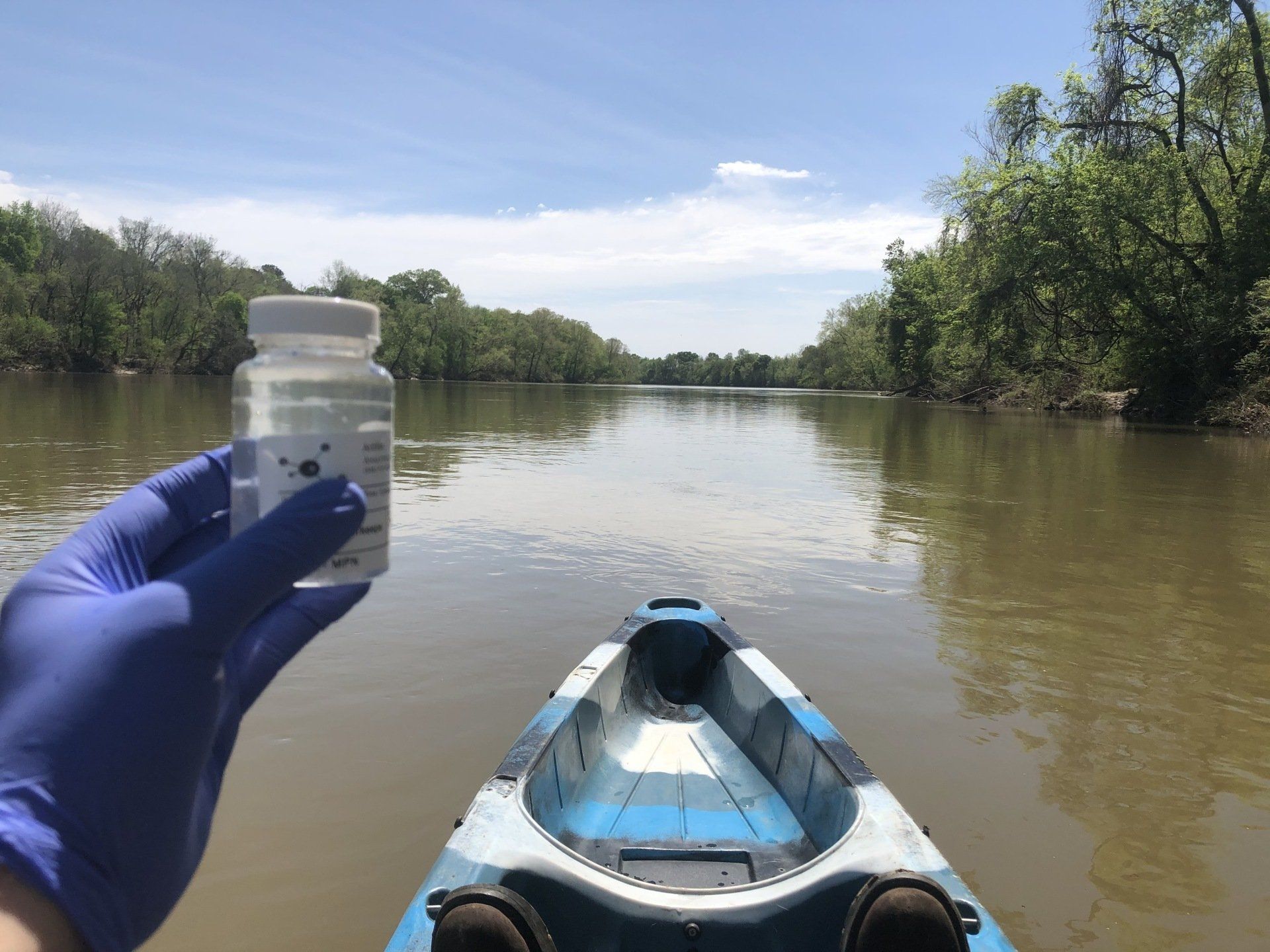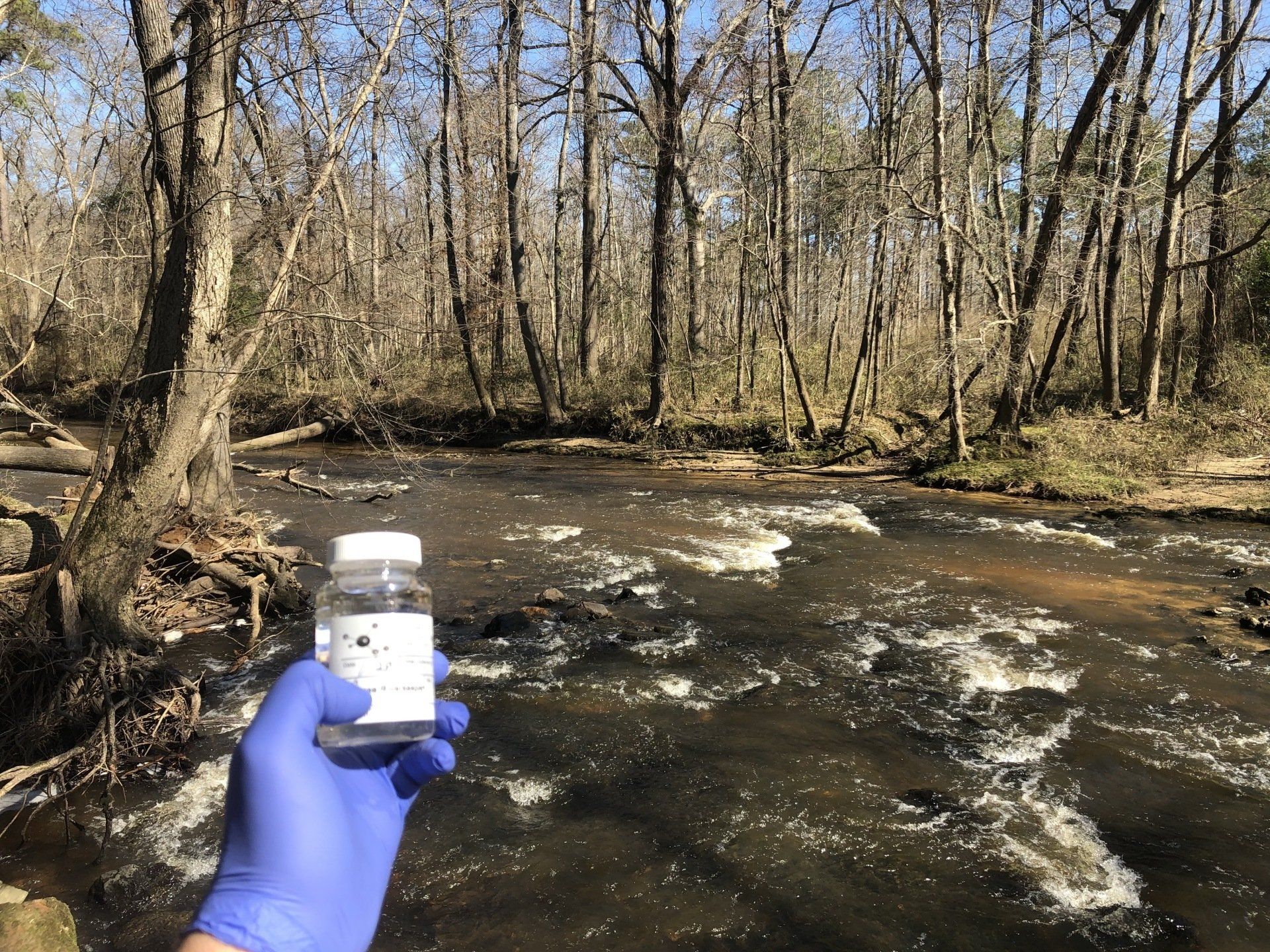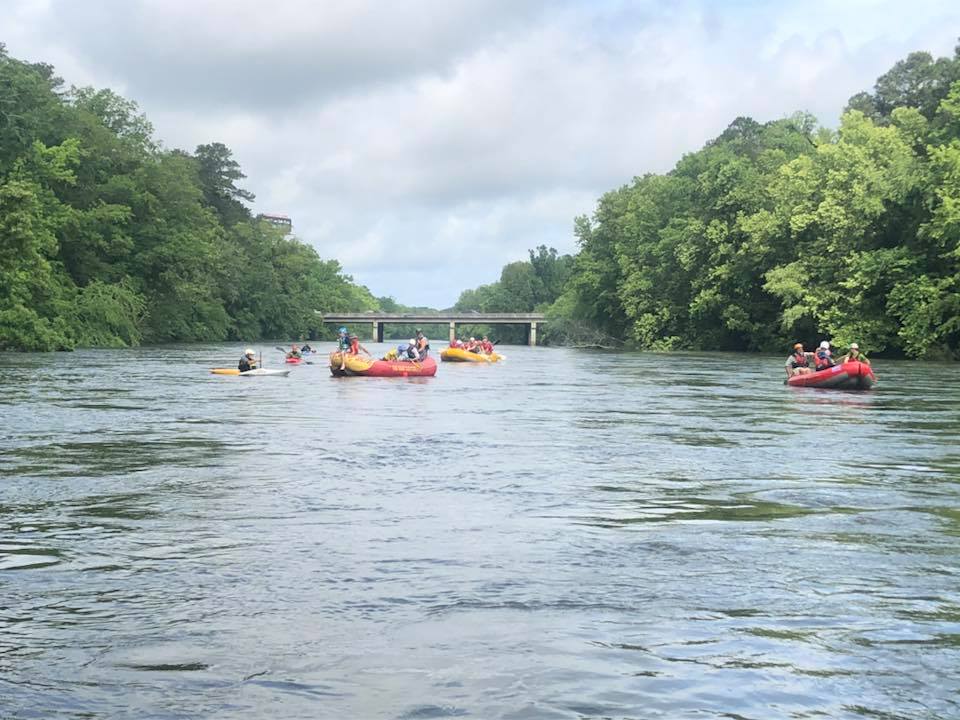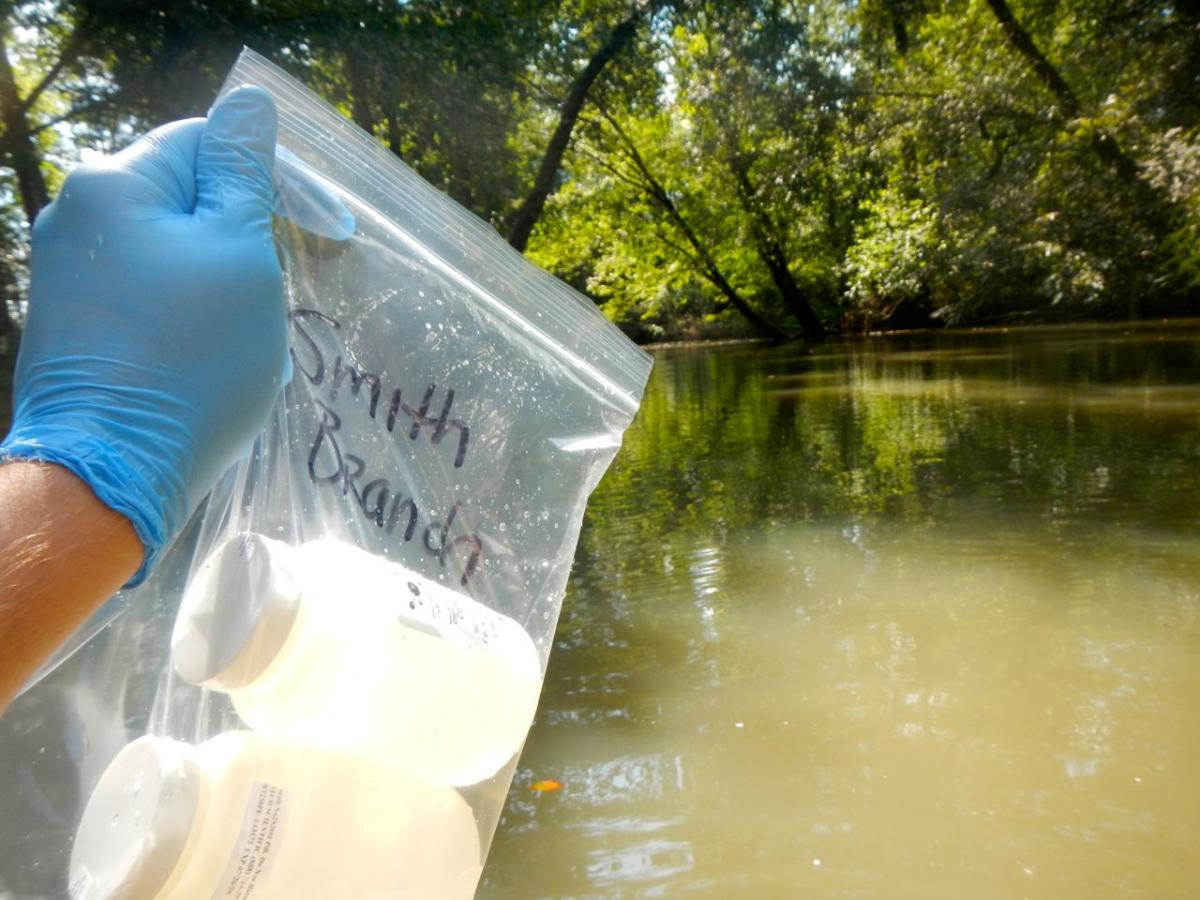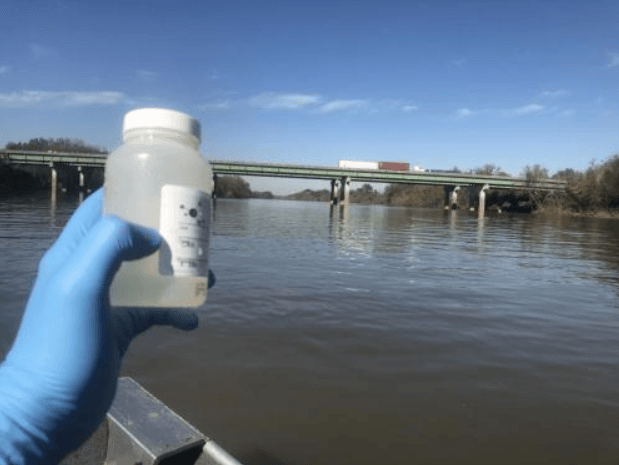Reports
Annual Sewer Spill Reports
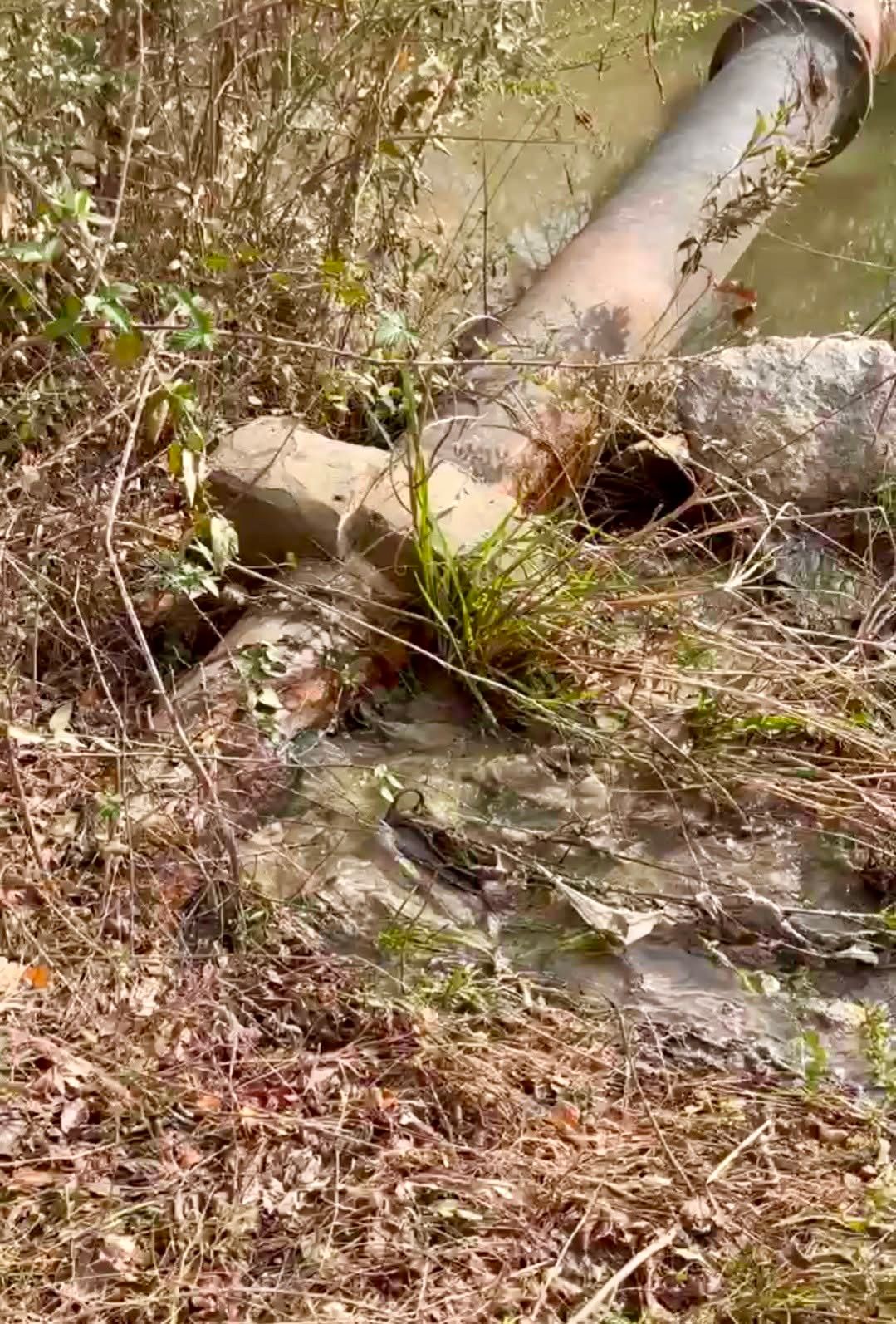
For the last twelve years we have published an annual sewer spill report for Congaree Riverkeeper's jurisdictional area, which includes the Lower Saluda, Lower Broad, and Congaree Rivers, and their tributaries, using data from DHEC's Sewer Overflow Database as well as other spills we investigated. In 2024 there were more than 100 reported sanitary sewer overflows (SSO's) totaling well over a million gallons of sewage spilled in our watershed. Sewer overflows can contaminate waterways and impact water quality, creating both ecological and public health issues. River users who are exposed to sewer overflows may experience health problems including infections, rashes, and gastrointestinal issues.
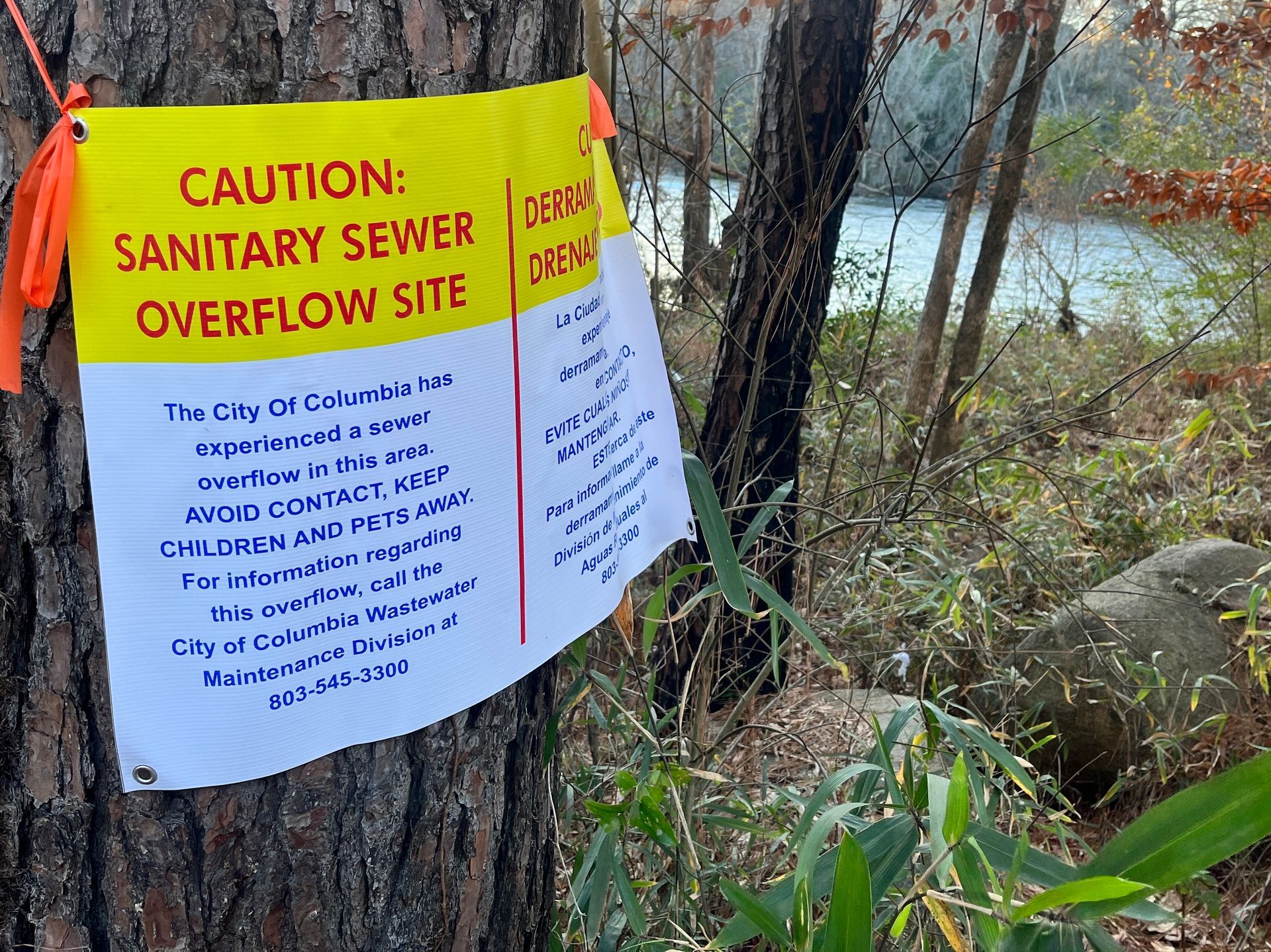
For the last eleven years we have compiled an annual sewer spill report for Congaree Riverkeeper's jurisdictional area (which includes the Lower Saluda, Lower Broad, and Congaree Rivers, and their tributaries) using data from DHEC's Sewer Overflow Database . In 2023 there were 114 reported sanitary sewer overflows (SSO's) totaling 4,190,509 gallons of sewage spilled in our watershed. This is a very significant increase from previous years. Sewer overflows can contaminate waterways and impact water quality, creating both ecological and public health issues. River users who are exposed to sewer overflows may experience health problems including infections, rashes, and gastrointestinal issues.
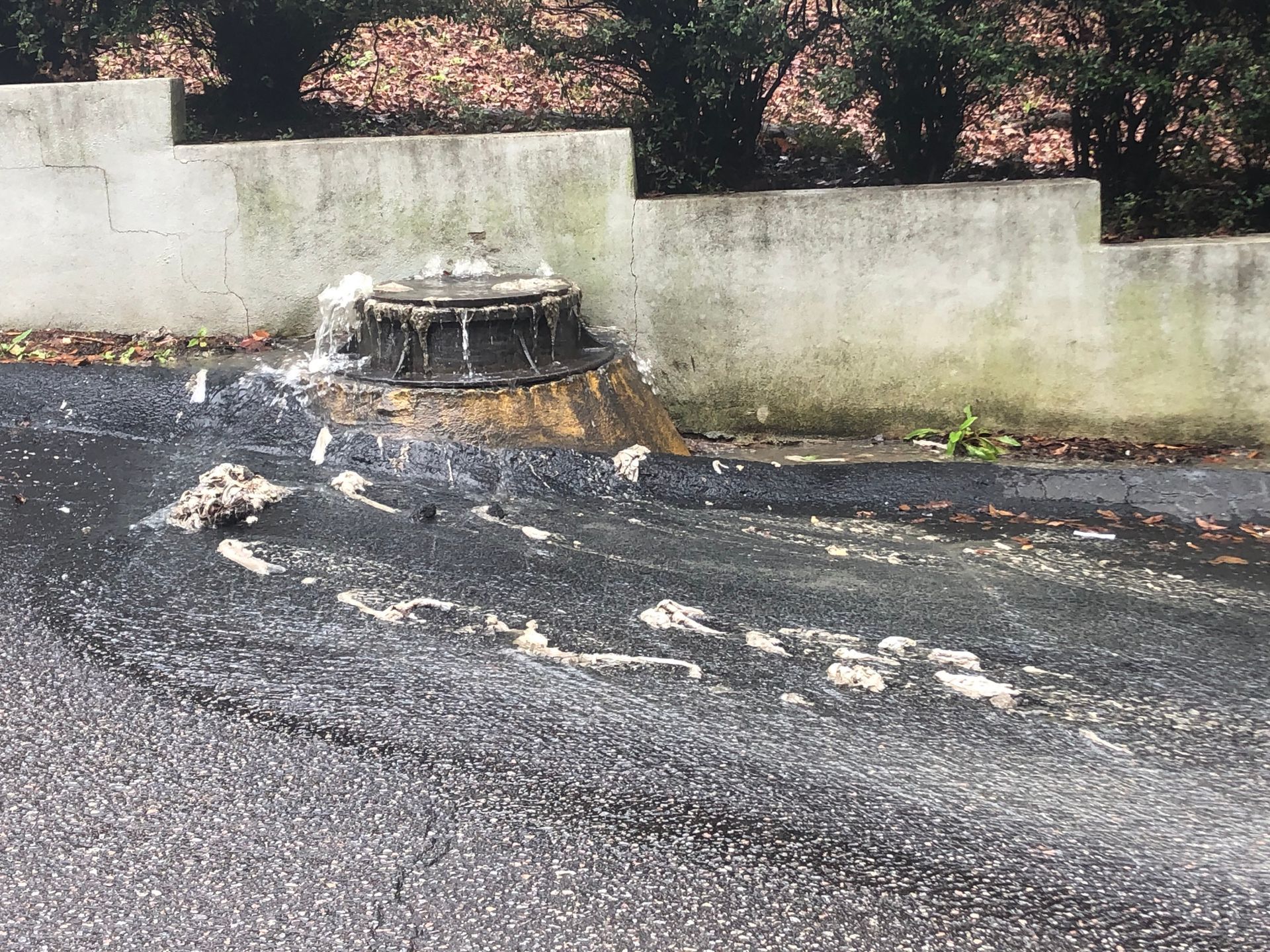
For the last decade we have reviewed the data from DHEC's Sewer Overflow Database to compile an annual sewer spill report for Congaree Riverkeeper's jurisdictional area (this includes the Lower Saluda, Lower Broad, and Congaree Rivers, and their tributaries). In 2022 there were 118 reported sanitary sewer overflows (SSO's) totaling 369,612 gallons of sewage spilled in our watershed. This is a significant reduction from the last few years. Sewer overflows can contaminate waterways and impact water quality, creating both ecological and public health issues. River users who are exposed to sewer overflows may experience health problems including infections, rashes, and gastrointestinal issues.
Water Quality Reports
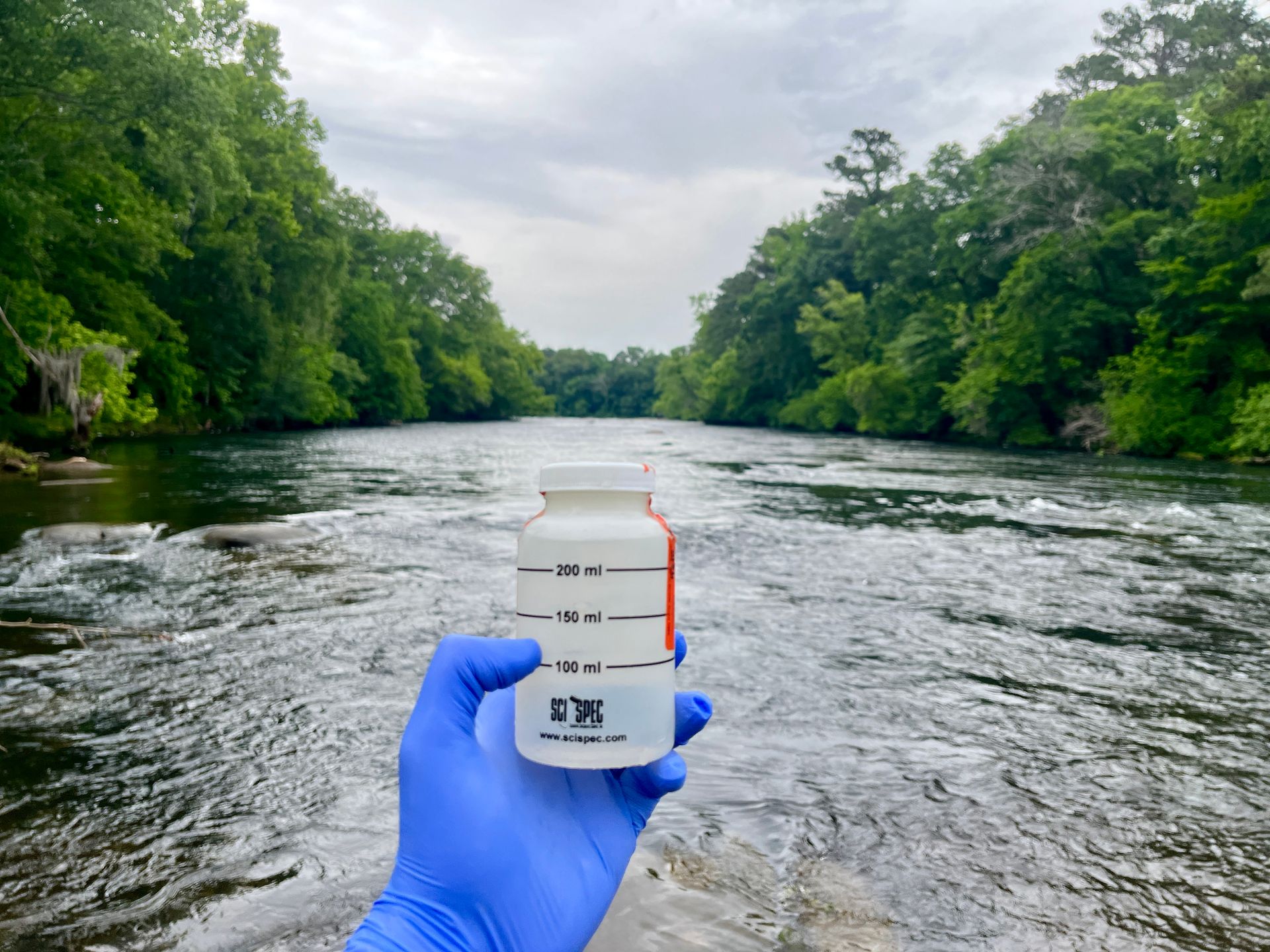
The ninth season of the Midlands Rivers Coalition 's weekly recreational water quality monitoring just concluded at the end of September. This season was a mixed bag of results, with several weeks of swimming advisories, but also lots of "all greens." The numbers below provide a snapshot of the season: 11 sites on the Broad, Lower Saluda and Congaree Rivers were sampled every week for 21 weeks, from May - September 269 total bacteria samples were collected (231 regular samples and 38 follow-up samples) 49 samples did not meet the state standard for contact recreation (38 regular samples and 11 follow-up samples) 86% of all samples collected this season met the state standard for contact recreation (an improvement from last year's 78%) 8 weeks with at least one swimming advisory issued (but only 3 of those had advisories continue after follow-up sampling ) Finished with 6 straight weeks of All Greens! From 8/14 - 9/24 all samples met the state standard for contact recreation and there were no swimming advisories issued 10 of the 11 sample sites had multiple swimming advisories issued this season Once again, only one site, the Saluda Shoals Canoe Landing (aka Upper Landing) had zero advisories this season Stormwater runoff is a significant source of pollution, and a major driver of the high bacteria levels and swimming advisories. Remember, we often see elevated bacteria levels in the 24-48 hours after significant rain events. River users should always pay attention to the weather and use their best judgement. Sewer spills also contribute to water quality issues, and the coalition used the website to notify the public of several spills impacting the rivers this season. Thank you so much to all of the Midlands Rivers Coalition partners who help make this effort possible. Weekly water quality monitoring will resume in May of 2026.

The Midlands Rivers Coalition just wrapped up our eighth season of weekly recreational water quality monitoring at the end of September. This season saw many bacteria samples over the state standard for contact recreation, resulting in several swimming advisories. Take a look at the numbers below for a snapshot of the season: 11 sites on the Broad, Lower Saluda and Congaree Rivers were sampled every week for 22 weeks 291 total bacteria samples were collected (242 regular samples and 49 follow-up samples) 64 samples did not meet the state standard for contact recreation (49 regular samples and 15 follow-up samples) Only 78% of all samples collected this season met the standard for contact recreation (a significant decrease from last year's 92%) 10 weeks with at least one swimming advisory issued (6 of those advisories continued even after follow-up sampling ) 4+ weeks straight (7/17 - 8/15) with at least one active swimming advisory 10 of the 11 sample sites had multiple swimming advisories issued this season Only 1 site, the Saluda Shoals Canoe Landing (aka Upper Landing) had 0 advisories this season Why were there so many high bacteria results? While a few of the high samples occurred during dry weather, most followed significant rainfall events. So, it would appear that stormwater runoff was a primary driver of the water quality issues, though sewer overflows may have also contributed to some. Thank you so much to all of the coalition partners who help make this effort possible. Weekly water quality monitoring will resume in May of 2025.
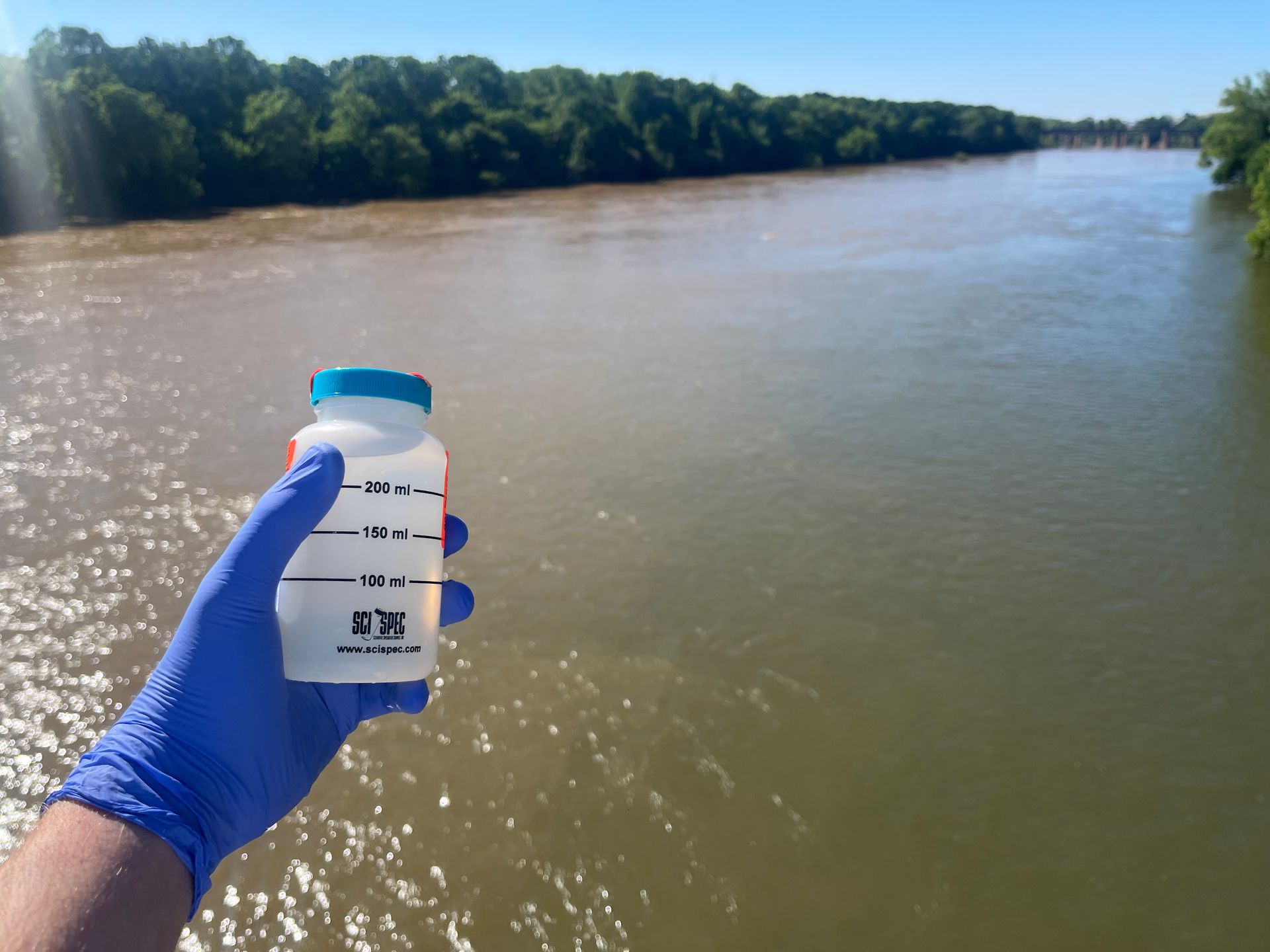
The Midlands Rivers Coalition just wrapped up the seventh season of weekly recreational water quality monitoring. And we ended the season with all greens! You can see the results and map at HowsMySCRiver.org . Here's a quick look at the sampling season by the numbers: 11 sites were sampled every week for 22 weeks 260 total bacteria samples collected (including regular and follow-up samples) 22 samples did not meet the state standard for contact recreation 91.5% of all samples collected this season did meet the standard for contact recreation 4 swimming advisories were issued (2 of those were lifted the next day after follow-up sampling) 1,800+ total website users, 16,000+ website clicks ~4,000 average weekly social media reach Thanks so much to all of the coalition partners who help with this effort. Weekly water quality sampling will resume in May of 2024.
On July 22nd and 23rd, Congaree Riverkeeper collected our regular water quality samples from local rivers and streams. Two urban stream sites, Gills Creek and Smith Branch, showed elevated bacteria levels (above the state standard of 349).
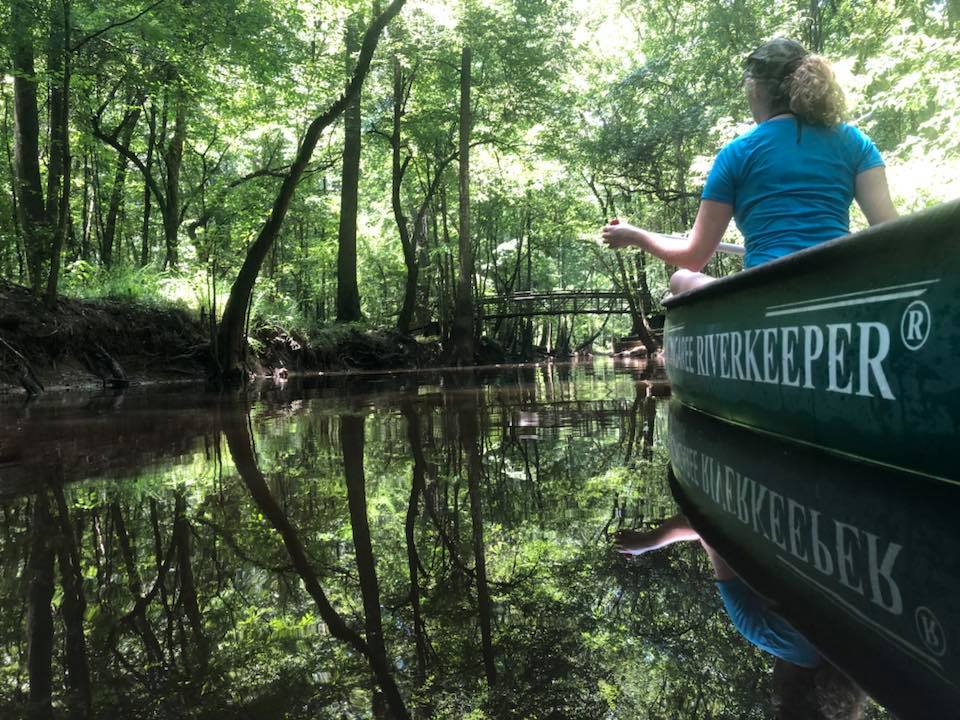
On May 28th and 29th we collected our regular water quality samples from local rivers and streams. While all the river samples were well below the state standard for contact recreation of 349/100 mL, our urban stream samples told a different story. Three sites, Smith Branch, Rocky Branch, and 12 Mile Creek showed elevated bacteria levels. These urban streams have had multiple exceedences over the last several years of sampling. It has been pretty dry lately, so these exceedences are not likely related to stormwater runoff. Other possible sources of bacteria include wildlife, sewer overflows, illicit connections, and failing septic systems.
